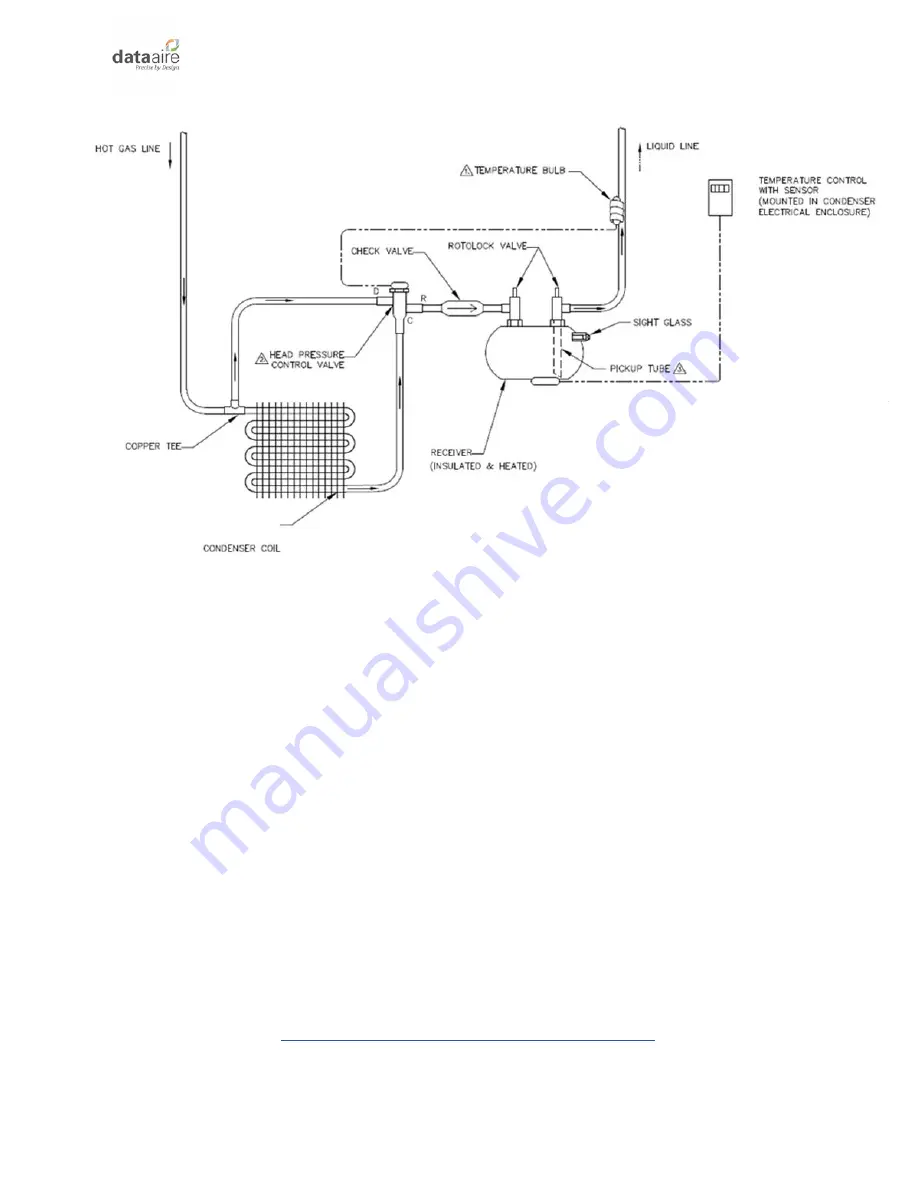
57
Figure 10 Typical Low Ambient Receiver Package
NOTES:
1. Install the Low Ambient Control (LAC) valve remote sensing bulb on a smooth flat part of the
liquid line for optimal surface contact and insulate the bulb after mounting.
2. Keep the LAC away from the hot gas inlet.
3. Make sure the receiver is mounted with the pickup tube at the liquid line outlet.
5.8.11.2
Pre-Charge Receiver
Flooded systems will require more refrigerant than fan speed control systems due to the receiver added
volume. Allow the liquid line solenoid valve (LLSV) and the TXV to close.
To charge, connect the pressure gauge manifold set to the high and low ports near the compressor.
Connect the charging line to the refrigerant tank and set for liquid feed. Open the refrigerant tank valve
and purge the line.
Use a “liquid charging adapter” to break the vacuum with 90 PSIG (621 kPa) of liquid refrigerant so
liquid refrigerant doesn’t enter the compressor through the open compressor suction and discharge
Rotolock service valves.
Before starting the system, charge the receiver with liquid refrigerant through the liquid line leaving the
receiver. Weigh in the refrigerant until the proper amount of refrigerant is added that is required by the
receiver in the system (see
Table 17 Refrigerant Receiver Charging Chart
), or
enough refrigerant to
provide a liquid seal in the receiver. Receiver storage capacities are based on the liquid occupying no
more than 90% of the internal volume when the temperature of the refrigerant is 90°F (32°C) per
ASHRAE Standard 15-94.
Summary of Contents for DA PA-04
Page 1: ......
Page 81: ...DAP IOM_10 2022 ...
















































